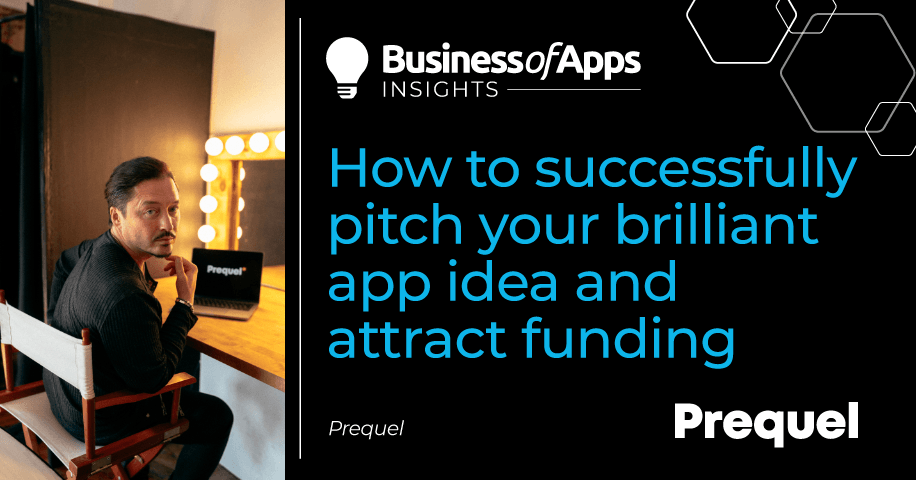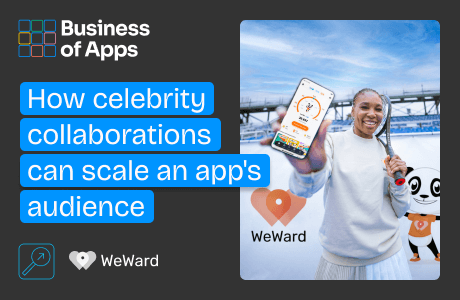In 2021, Prequel formed its new foundation Venture Studio, our programme to partner with the brightest minds in app development. We’re fortunate that Prequel has been successful enough for us to have the opportunity to offer what we consider a significant amount of funding for development – $10 million – a cash injection we think can really bring out the best from the most promising app ideas.
We think funding coming from an existing technology company makes a lot of sense for those developers who have an amazing idea that has the potential to become a worldwide hit, as long as it can be nurtured, with the right combination of insight and growth.
Of course, starting an app business isn’t just about writing code. A problem shared is a problem halved and we already have talented teams in place to cover the essentials that many newcomers to the industry may initially struggle with – marketing, art, finance, HR, and most importantly, the overall experience of starting a business. And because Prequel is a leading AI platform, we have exceptional technical and R+D ability to offer too.

Generative AI technology is rapidly transforming creative industries, with new possibilities for customized visual styles in personal image content.
We know this because we’ve faced the same challenges when growing Prequel. We started in 2018 with just two founders discussing creative ideas in New York’s Bryant Park, but we grew quickly and our international team now comprises over 200 employees.
In the early days, we found that many of our ideas for growth were held back by a lack of funds, so we couldn’t take every decision we wanted when we wanted. By offering that funding to new app developers, we’d solve this problem for them and help them grow from a seed to a startup. In return, we’d have a way to grow our business portfolio with even more great ideas.
That’s the theory behind our foundation. However, two years on, our funding remains unclaimed. Despite receiving an overwhelming response, no proposal has so far been suitable.
There are lessons here for us to learn from since we remain fully committed to Venture Studio and intend it to be successful. But we also believe we can offer some advice to aspiring app developers too, based on the responses we received.
The app business is an incredibly broad industry. Obviously, the principles of computer science are one of its most critical components – from coding in specific languages to software engineering and UI design.
Ultimate App Growth Guide 2025
Boost your app’s success with the Ultimate App Growth Guide! 🚀 Expert insights, proven strategies & must-know tips. Download now!
Master app growthFor most people, learning to code is a relatively straightforward process. Everyone begins with “Hello World” in whatever language they choose. Exercise projects then grow that knowledge, teaching concepts of increasing complexity, diving into more detailed concepts and more capable APIs involving object-oriented design, databases, networking, web technologies and so on until an individual is well equipped to take on all kinds of coding tasks.
Once people become more confident in their coding ability they usually begin to think more creatively. Rather than following the app ideas presented in books or in tutorials, they start to come up with their own design ideas.
But design creativity is equally a learning process that also needs time, effort and diligence in the same way that learning coding does. The very first app plan you have is usually not going to be the genius idea that makes you a millionaire overnight. A vast majority of the responses we received for Venture Studio have been the earliest ideas that many developers come up with.
In this sense, app developers are like artists, musicians and film-makers. Coding is the brush, instrument or camera – the tool with which to become proficient, but few artists create their very best work right after mastering their tools.
Why market research is key
When pitching an idea, it’s not just about showing off your coding skills but demonstrating an understanding of the market you’re operating in. It’s about knowing your users, customers and competitors.
Understanding the needs of an audience is the key difference between an app idea that’s really only a few steps on from a glorified coding exercise, a personal project or a hobby, and an app that is truly ready to compete for customers in a busy marketplace.
The key to gaining that understanding is thorough, in-depth market research. Among the list of considerations is a clear definition of the core features that your app will offer, and how that will drive customers to your product.
A major part of that is thoroughly evaluating your potential competitors to see what features they offer and how they compete with your own idea. What do they do well, and what can your app do that competitors cannot? Why would customers choose your app over them, based on what unique features you are offering?
Are you certain customers really want those features? What is the demand like for those competitors? Will you be competing for those same customers, and is the entire market growing?

Personalization is both a current and evolving trend within mobile graphics applications, so evaluating market conditions is a key consideration when releasing new app features.
You may not be able to offer precise answers, but you at least need to be asking these questions when you’re looking at starting a commercial app business.
What’s more, we’re looking for app ideas that consider the direction of the wider technology industry. The consumer app business is driven by tastes and habits. What are your predictions for technology over the next few years? What new opportunities could there be that your app might be able to take advantage of? You need to consider whether there will be future demand for what your app has to offer, and even consider how your competitors will evolve.
In this sense, the technology industry is no different from any other. These same considerations about market growth, trends and competition are the same for all organisations. Put simply, if you want to compete for market share and attract customers, you need to think about demand.
To be clear, we’re not seeking total perfection from developers who apply to become part of Prequel’s Venture Studio. A mutual partnership is about helping each other, and we’re interested in ideas (and individuals) that show the most potential to reach that next level, but we’re not expecting anyone to be at that level just yet.
Beyond code
We’re evaluating how we communicate our requirements for Venture Studio. Like in a job interview, the candidate that ticks every box in a list of requirements will certainly do well, but to make a lasting impression and stand out, it always helps to have ideas that show you’ve gone above and beyond that list and put the effort in to fully understand the direction that business is going in.
The same advice holds for app pitching – it’s your idea, and you need to really show you have an understanding of how you see it working, and be able to answer questions about it.
Prequel’s Venture Studio and funding are still open, and we’re still seeking great app ideas, so if you believe your project could become the next big thing, we’d be happy to talk to you.
But even if that’s not the case, and you’re not looking at attracting funding quite yet, we hope these tips have been helpful and may lead you to rethink what goes into a successful app business. So let’s all crack on and build some great apps that will continue to change the world.
Prequel would love to hear from you if you’re an independent artist, developer or even both at the same time, with a brilliantly creative idea you’d love to take to the next level. To learn more about Prequel’s Venture Studio foundation visit www.prequel.app/foundation.











